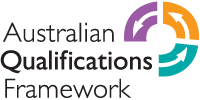CLET RPL is Helping Military and Police Transition with Conf...
This unit describes the skills and knowledge required to contribute to the effectiveness of the work team. It involves planning with the team to meet expected outcomes, developing team cohesion, participating in and facilitating the work team, and communicating with the management of the organisation.
It applies to individuals who play a prominent part in motivating, mentoring, coaching and developing team cohesion through team leadership and forming the link between the management of the organisation and the team members. At this level, work will normally be carried out within known routines, methods and procedures, and may also involve complex or non-routine activities that require some discretion and judgement.
No licensing, legislative or certification requirements apply to this unit at the time of publication.





